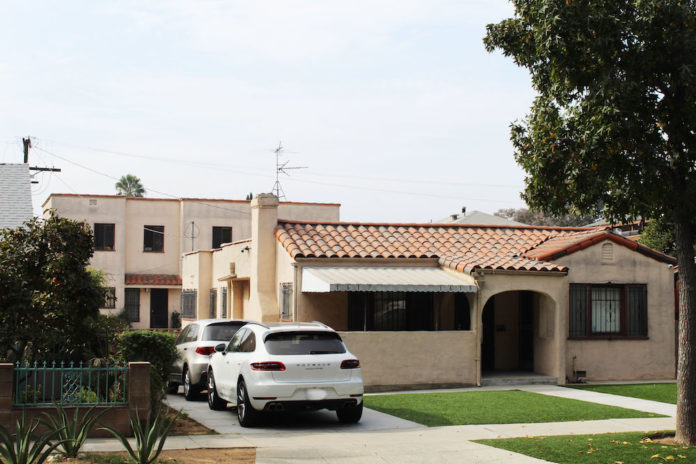
Noise levels have been a cause of dispute between residents of Eagle Rock and students of Occidental College for many years. In 2016, Eagle Rock resident complaints about students’ noise prompted a Campus Safety crackdown on off-campus events, and eight members of the ATO house were placed on probation for noise in 2014. However, noise has reduced in certain areas around campus in the past few years, according to Eagle Rock homeowner Jane Demian. Demian, a resident who has lived in her home since 2010, said she had to complain to the school and to the city attorney in order to keep the noise levels down in the off-campus areas near the football field. Demian said students used to urinate on her lawn, loiter on the streets around her house and drink alcohol in the open around 2012. According to Demian, her efforts have paid off and she has not found the need to raise concerns in recent years.
“Things have quieted down, but we had to do a lot of work to get to this point. We had to contact the neighborhood prosecutor to intervene. We had meetings at the college with students, with faculty, with administration, with neighbors,” Demian said. “It was really exhausting. I don’t think anybody should have to do that.”
Eagle Rock resident and Occidental student Zander Granath (senior) said he believes recent complaints from a neighbor on his street have been unfounded, but Granath does not want to risk hosting any social events because of a potential $250 fine from his landlord. According to Granath, his landlord has received so many complaints from the same resident further down the street that his house would be fined for noise the next time this resident called and complained — even if it was during the day. Daytime noise is allowed as outlined by the Los Angeles municipal code.
“All our other neighbors, we’re on really good terms with,” Granath said. “We had [neighbors] over for a beer at one of our parties. We know all their names, we’re knocking on their door with banana bread. Everybody else is really cool with us.”
Students Cassie Carter (senior) and Amelia Premfors (senior) said they have not received any noise complaints this year, mostly due to a strict agreement with their landlord. Carter and Premfors live in “Jailhouse,” an off-campus house that has a history of hosting large parties on the weekends. Carter said Jailhouse residents have agreed not to make excessive noise past midnight, and that their landlord would fine the residents if they did not follow this agreement. According to Carter, these rules were implemented due to frequent noise citations filed against previous residents of the house.
According to Granath, noise complaints have hurt the social culture at Occidental. Granath said he has seen a decrease in parties and off-campus events since he was a first year. He said he would like to host social gatherings that end before midnight but has been unable to do so because of the threat of fines. Occidental has a culture of working hard, and students on campus can sometimes glorify stress, according to Granath.
“Any campus atmosphere needs some kind of outlet, especially with how hard Oxy students work,” Granath said. “I think noise complaints and relationship to landlords is the number one reason why Oxy has such a nonexistent off-campus party culture. People should be able to have fun, and we’re in college.”
Carter said noise complaints and the threat of fines have incentivized students to host fewer social events. According to Carter, the residents of Jailhouse had to limit the number of people allowed into their parties, and they hired a security guard to ensure that their parties did not get out of control.
“I think fines for noise limit social culture at Occidental. Large monetary threats for noise violations create a challenging dynamic for off-campus houses because we want to have fun social events, but we also have to recognize we are in a residential area that is not a typical college town,” Carter said via Facebook.
Rick Tanksley, director of campus security, said one of the ways he recommends that students reduce noise complaints is to meet their neighbors. Tanksley said he thinks a lot of residents will understand that college students are young and want to have fun, but that students need to be respectful of the people around them.
“Go out and introduce yourself to your neighbor. Just be respectful of your neighbors,” Tanksley said. “By making that connection with your neighbor, I think a lot of these issues can be resolved on that level without involving campus safety or the police.”
![]()


































